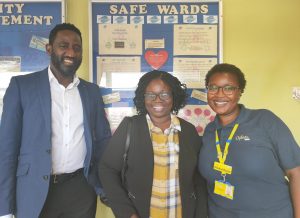ADHD is a neurobiological disorder – a disorder of brain development that affects behaviour. The main symptoms of ADHD are:
• Inattention (e.g. being easily distracted, making careless mistakes, difficulty concentrating)
• Hyperactivity (e.g. being unable to sit still when needed, talking excessively, having trouble playing quietly)
• Impulsivity (e.g. acting inappropriately, such as acting without thinking, interrupting and intruding on others).
Around five per cent (one in 20) of school-aged children are affected by ADHD, a neurobiological disorder of brain development that impacts on behaviour. ADHD is a treatable disorder yet if left untreated, can have a significant impact on personal development, academic outcomes and family interaction.
There is no simple test to determine whether a child has ADHD. The process for diagnosing or ruling out ADHD is variable across England. It will often include multiple steps and is based on clinical judgement informed by subjective reports from parents, teachers and observation of the patient. As such, children in the UK wait 18 months (average) to obtain an accurate diagnosis, more than the European average of 11 months. Multiple clinic visits over this period result in significant costs to the NHS, estimated at £23 million.
Research has shown that the use of objective assessment tools alongside other clinical information, can provide a more rapid diagnosis (with reductions of around five months).
Including an objective test is evidenced to:
• Reduce time for assessment and decision making (from first referral to decision to diagnose/rule out)
• Reduce the number of outpatient appointments between referral and diagnosis
• Reduce the number of nurse observation visits in schools
• Improve patient / family satisfaction / experience
• Improve clinician satisfaction and confidence in diagnosing or excluding ADHD.








